When it comes to pain and distress, emotionally hurt people unknowingly display a few typical behaviors that express their feelings, whether they intend it to or not.
“Everyone keeps telling me that time heals all wounds, but no one can tell me what I’m supposed to do right now. Right now I can’t sleep. It’s right now that I can’t eat. Right now I still hear his voice and sense his presence even though I know he’s not here. Right now all I seem to do is cry. I know all about time and wounds healing, but even if I had all the time in the world, I still don’t know what to do with all this hurt right now.” ― Nina Guilbeau, Too Many Sisters
People react to pain differently and deal with it differently.
This is even truer when it comes to someone who has been emotionally hurt.
Sadly, people who are emotionally wounded find it hard to live with their traumas and continuously seek ways to heal the pain they feel in their souls.
That is why their behaviors emotionally hurt people often seems weird to the others who have never been hurt in such a way.
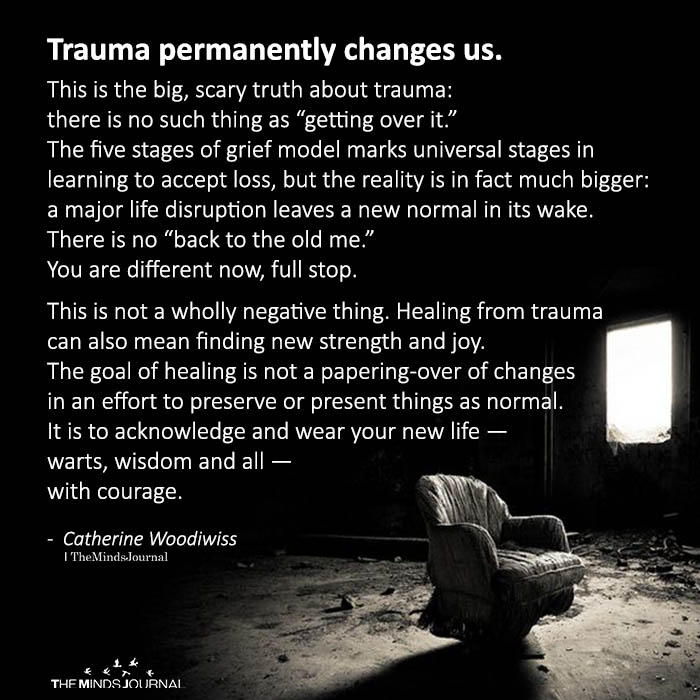
Here Are 11 Typical Behaviors That Emotionally Traumatized People Display Unknowingly
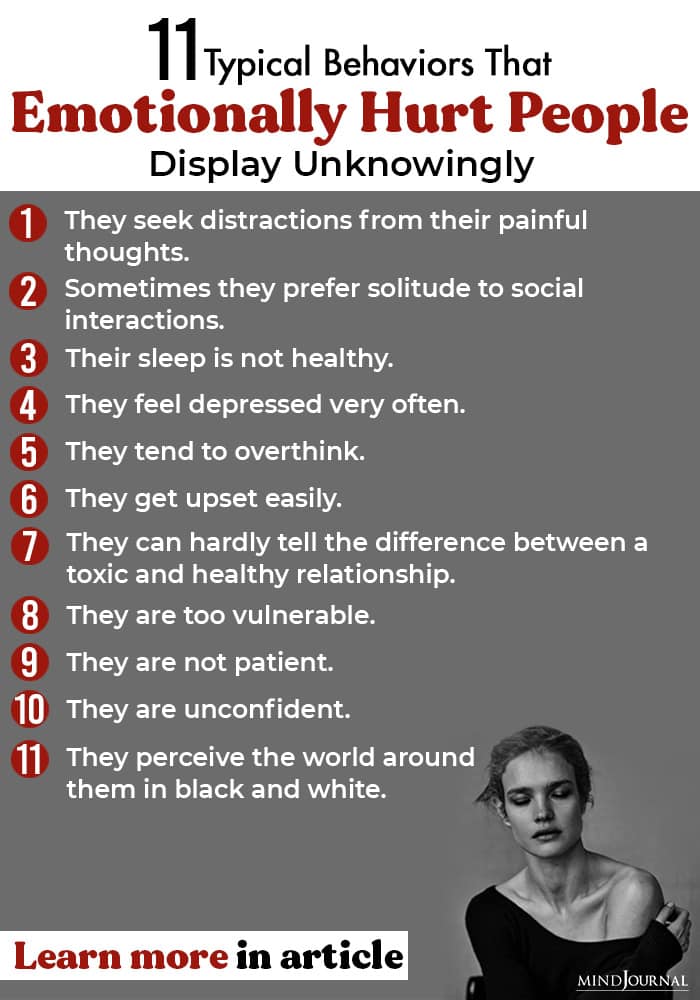
1. They seek distractions from their painful thoughts.
Emotionally hurt people need to get distracted from their bothering thoughts which disturb them all the time. As they tend to think about hundreds of painful things they feel a constant need to escape from their thoughts. So they need to keep themselves busy with something to ease their troubled minds. However, their occupations should be wisely chosen.
Related: Healing Trauma: How Your Brain Hides Painful Memories
2. Sometimes they prefer solitude to social interactions.
Emotionally hurt people feel everything very intensely. Sometimes their emotions are so deep and intense that they have to retreat from any social interaction and be alone with themselves far away from all people and situations that could destroy their fragile peace.
3. Their sleep is not healthy.
People who have undergone emotional traumas tend to have unhealthy sleeping habits. Sometimes they sleep long hours other times they cannot get enough sleep. This latter situation usually occurs if they stay up late at night because they are disturbed by their emotionally painful memories which prevent them from going to sleep.
4. They feel depressed very often.
If someone has been emotionally hurt, they tend to perceive negativity more intensely than others. That is why emotionally hurt individuals often feel depressed — usually because they dig deeper into the bad things that happen to them. These men and women seldom look at the bright side of life, and this is a considerable barrier to living a happy and fulfilling life.
Related : The Difference Between Sadness And Depression
5. They tend to overthink.
These people usually don’t make plans for the future, as they are too busy to overanalyze the things that happen to them in the present. They can’t help thinking over and over again about what has happened during the day or the week. They do so because it makes them feel comfortable and distracts them from the emotionally painful thoughts that tend to overwhelm their minds.
Sadly, these people tend to overthink all sorts of insignificant details not only the situations from the present moment, and very often become obsessed with them.
Related: 20 Tips For A Better Sleep That Don’t Require A Prescription
6. They get upset easily.
These people are highly sensitive and could get easily upset for the least important thing. But, it’s just a trait of their character. Hopefully if one day they manage to overcome their traumas their over-sensitivity will heal too.
7. They can hardly tell the difference between a toxic and healthy relationship.
It happens that wounded people might have difficulties making the difference between a toxic and healthy relationship. Unfortunately, that puts them at risk of falling victims to toxic relationships or poisonous people. And this could increase their anxiousness even more.
Related : How Optimistic Women Stay Trapped In Unhealthy Relationships
8. They are too vulnerable.
Emotionally hurt people get offended easily because as mentioned above they are highly sensitive. This is the reason why they could become defensive and react aggressively in trivial situations. Very often they would feel offended when others joke with them even if it is not in a mean way. The same is valid when someone puts them down as they are too vulnerable to accept criticism calmly.
9. They are not patient.
Patience is not a quality emotionally wounded individuals possess that’s why they quickly get annoyed with other people or situations. The worst part, however, is that such behavior could lead to negative reactions from other people and cause conflicts that are unnecessary.
10. They are unconfident.
People who are emotionally hurt usually are very unconfident because they’ve been belittled too long and don’t trust their point of view anymore. They live in a continuous cycle of doubts and need constant reassurance that they are on the right track.
For others, this is a manifestation of weakness, but they just cannot understand the struggles emotionally wounded individuals are going through.
Related: Healing Past Trauma
11. They perceive the world around them in black and white.
People who have deep emotional wounds tend to feel everything much more intensely than others. It’s little surprise then that their mood changes all the time, going from extremely happy to very sad in the blink of an eye.
These people perceive things in black and white, due to their traumatic emotional experiences. And such thinking could lead to serious issues with their self-esteem, happiness, and relations with others.
If you notice these types of behavior in someone, there’s a high chance you’re dealing with an emotionally hurt individual so you should be kinder with them.
Remember that these are people who need advice and support so you could help them if you become their friend. It’s not a bad idea to keep them company in order to distract them from the overwhelming pain they have to handle all the time.
Written by Maria Hakki Originally appeared on IHeartIntelligence.com
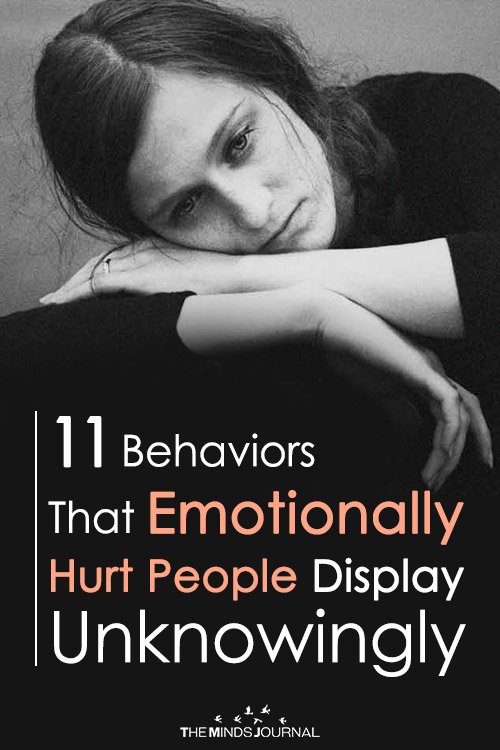
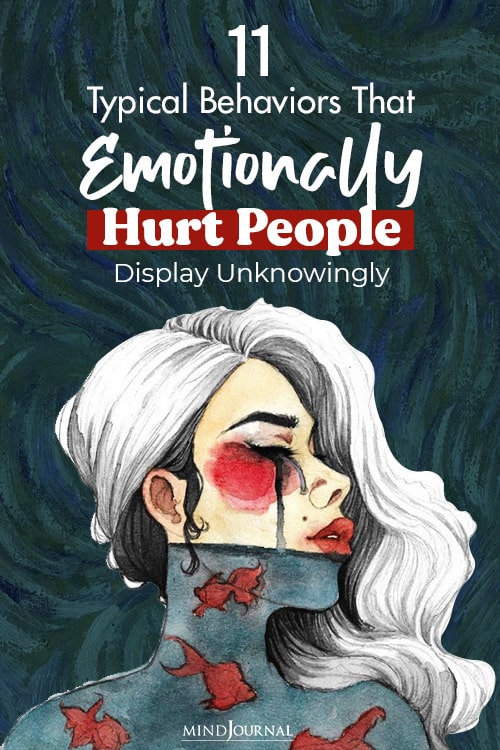

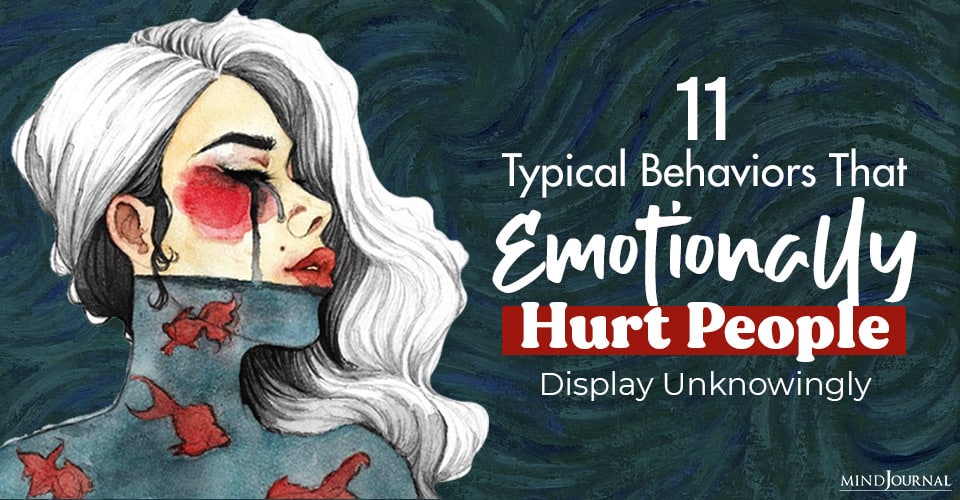







Leave a Reply